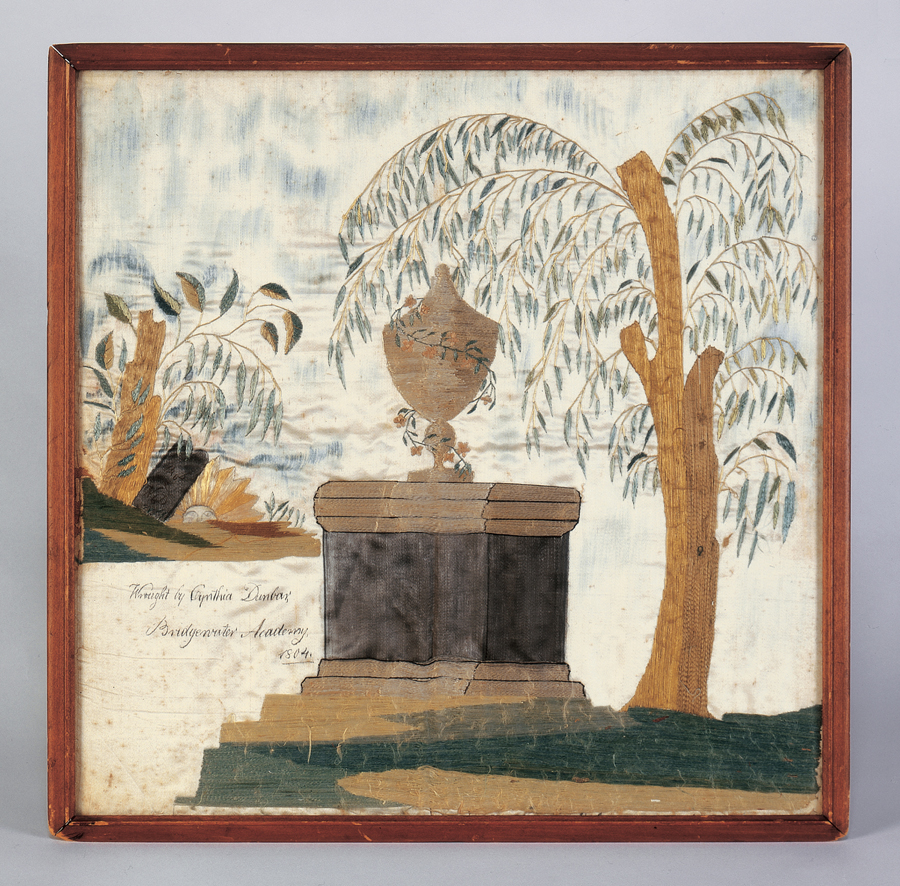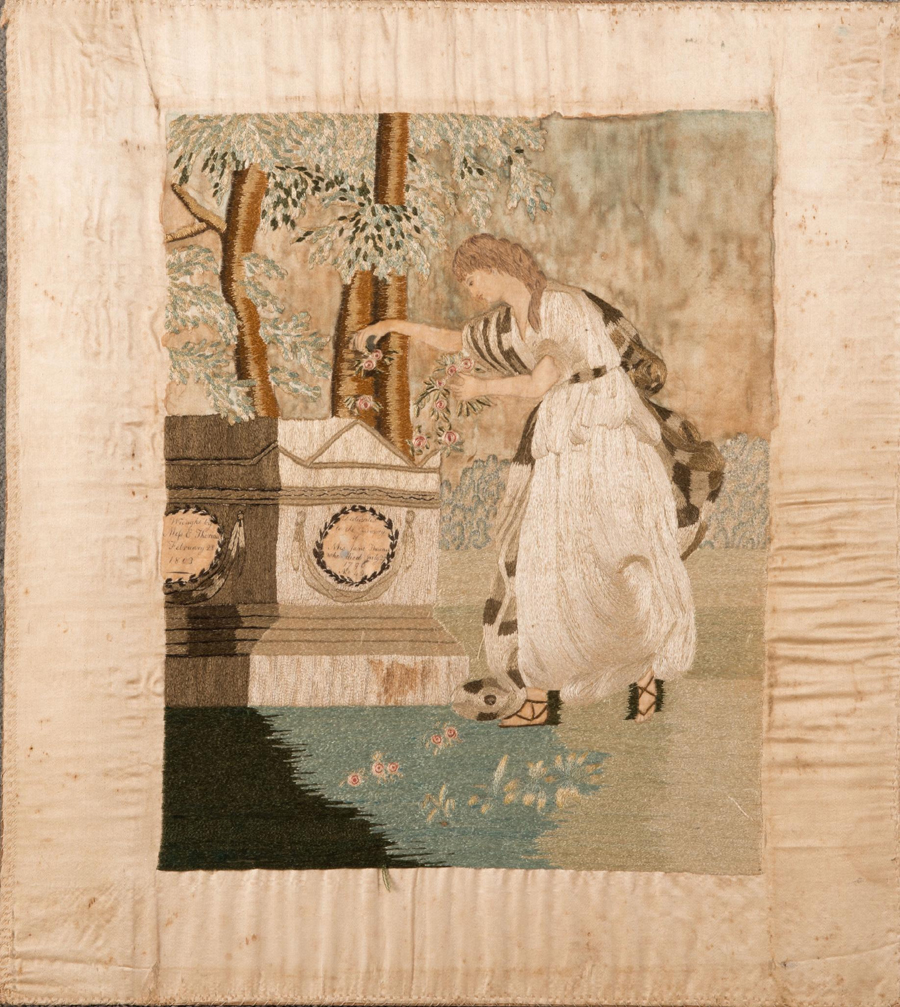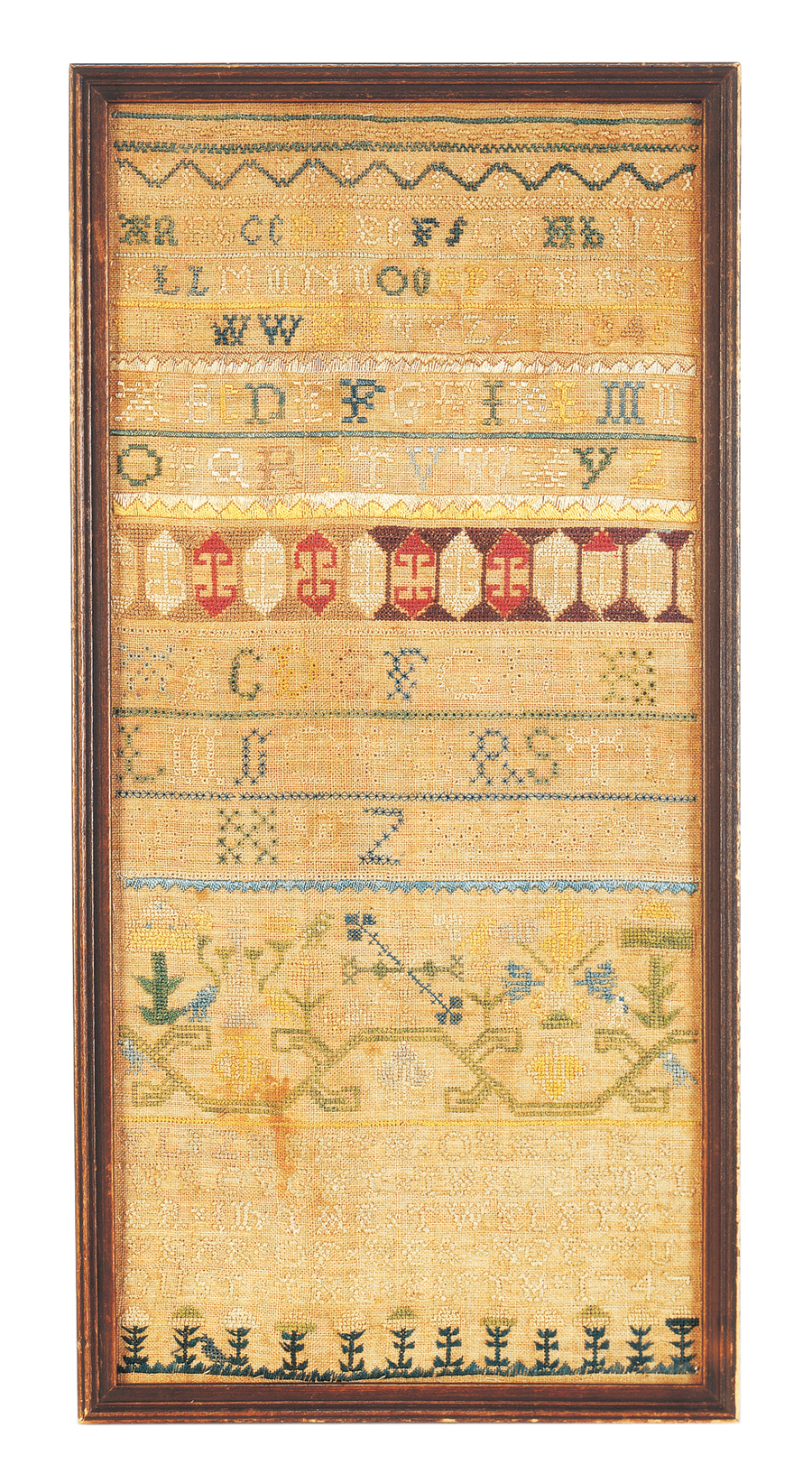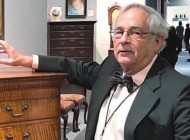By Laura Beach
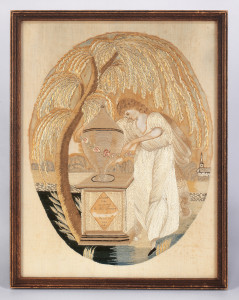
Silk embroidered mourning picture, possibly by Elizabeth Thoreau, 1805-10, inscribed to the memory of John Thoreau, who died in 1801. Concord Museum.
CONCORD, MASS. — The Concord Museum recently acquired an embroidered memorial to Jane Burns Thoreau, grandmother of author Henry David Thoreau (1817–1862). The piece, included in Grogan & Company’s June auction in Boston, was worked by the writer’s aunt Elizabeth Thoreau (1782–1839) and is embellished with the idealized figure of a woman in classical dress placing flowers on a tomb inscribed to her mother, Jane Thoreau, who died July 27, 1796, at age 42.
The memorial to Jane Thoreau joins four other museum-owned works that descended in the Thatcher family, Thoreau cousins who lived in Maine. Northeast Auctions offered the five embroideries for sale in 1989. Concord Museum acquired four of the embroideries at the Northeast sale but was outbid on the Jane B. Thoreau work. When the Jane Thoreau embroidery came up again, at Grogan & Company, the museum was able to buy it for $2,074 ($2/3,000), including buyer’s premium.
“This was the one that got away. From our vantage, we got a bargain this time. The hammer price was roughly half what it was when we lost it at Northeast nearly 30 years ago,” said Concord Museum curator David Wood.
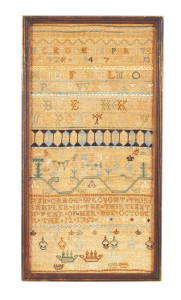
Sampler worked by Ann Orrock (Orrok) (b 1740), Boston, 1753. Silk, linen. Concord Museum. This sampler and another by Ann’s sister, Elizabeth, are from a well-documented group of pre-Revolutionary Boston pieces. The girls may have attended Abigail Hiller’s school on Fish Street in the city’s North End.
Jane Burns married Jean Thoreau, who emigrated to America from the Isle of Jersey in 1773. Jean later Anglicized his name to John. The couple had eight children. Elizabeth’s brother John married Cynthia Dunbar. Henry David Thoreau was one of four children of John and Cynthia Dunbar Thoreau.
The reunited pieces, which date from the mid-Eighteenth Century to the early Nineteenth Century, form a noteworthy record of the women of the extended Thoreau family. The memorial to Jane B. Thoreau and another to her husband, John, are the products of an as of yet unidentified Boston academy, Wood said, noting, “It is possible that the memorial to Jane’s husband, John, is also the work of their daughter Elizabeth.”
Another silk embroidery in the group is by Cynthia Dunbar Thoreau. “She was at Bridgewater Academy in 1804 when she worked the memorial. It has a rising sun, a motif typical for Bridgewater Academy,” said Wood. The Dunbar piece is included in the current exhibition, “Women of Concord,” a companion to “N.C. Wyeth’s Men of Concord.” Both shows close in September.
Two other Thoreau pieces are band samplers, worked by daughters of the Orrock (also spelled Orrok) family in 1747 and 1753. Both include hourglasses, a motif expert Betty Ring linked to Boston’s North End.
“These Orroks were Henry David Thoreau’s great-aunts,” said Wood.
The Thoreau Collection at Concord Museum features more than 250 objects related to the author and his family. Artifacts include the desk on which Thoreau wrote “Civil Disobedience” and Walden plus some of earliest known photographs of Walden Pond.
The Concord Museum is at 2001 Lexington Road. For information, 978-369-9763 or www.concordmuseum.org.

